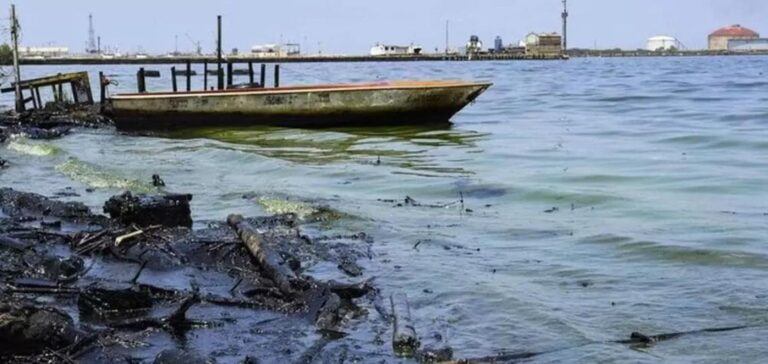Venezuela will implement a plan to decontaminate Lake Maracaibo, the country’s largest lake, affected by incessant oil spills and a bacterium that produces toxic algae, President Nicolas Maduro promised on Monday.
Lake Maracaibo oil spills: combating oil pollution and toxic algae
Covering an area of 13,200 km2 and linked by a strait to the Caribbean Sea. Oil-rich Lake Maracaibo (northwest) has been affected for years by crude oil spills. According to complaints from environmentalists and residents living near the vast body of water, who consider its cleanup an “emergency”. According to the researchers, it’s common to see birds, fish and other aquatic species impregnated with oil.
Added to this pollution is the proliferation of “Microcystis” bacteria, which produce toxic algae that can cause disease. President Maduro said he had “ordered a technical-scientific study” and “drawn up a plan” for the “decontamination and rehabilitation of Lake Maracaibo”. At a ceremony in the region, he said he had “received complaints about oil overflowing into the lake”.
State-owned oil company Petróleos de Venezuela (PDVSA) has stopped maintaining its thousands of kilometers of cables and pipelines, a deterioration of its infrastructure due to the economic crisis, corruption, lack of investment and U.S. sanctions against the country.
“We’re going to take care of the lake”, Mr. Maduro promised, “despite the sanctions, the blockade” because “Lake Maracaibo, a beautiful lake, must be saved”, he hammered.






















